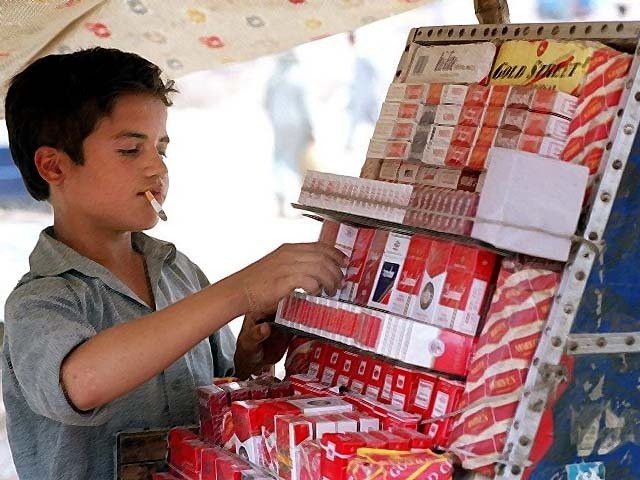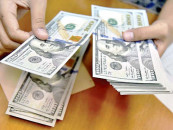Illicit cigarettes capture larger slice of market
Tobacco industry seeks govt action against illegal manufacturers

Pakistan's tobacco sector has urged the government to control the threat of illicit cigarettes as it is becoming difficult for companies to do business under such an environment.
Shedding light on the industry's point of view, Pakistan Tobacco Company Head of Corporate Affairs Madeeh Pasha told a group of journalists that during the last couple of years, the volume of counterfeit cigarettes had increased sharply and according to latest estimates, it had approximately reached 2.75 billion sticks.
"The government needs to identify these units and take action at the retail level to protect the domestic legitimate sector," Pasha stressed.
Moreover, as stated by the worldrenowned research institute, Oxford Economics, the share of tax-evaded cigarette sector stands at 37.6% currently, primarily due to 93% increase in excise duty rate in the past 18 months, which did not cause any decrease in tobacco consumption in the country.
Owing to increase in taxes, it was observed that the tax-evaded cigarette sector expanded from 33% to 37%, causing the government losses worth more than Rs70 billion during the period.
Industry stakeholders said the undocumented sector took immense advantage of increased taxes on the regularised tobacco sector as it had been selling a 20-cigarette pack for Rs25-40 for the past eight years and would continue to sell at the same price even if health tax was levied.
The prices at which these cigarettes are being sold are below the minimum applicable taxes of Rs44.25 and below the minimum price of Rs62.75 per pack set by the government.
The levy of health tax on regularised cigarettes would not help achieve the desired objectives and would instead cause a shift in consumer preference to tax-evading cigarette brands, the industry players cautioned.
According to PricewaterhouseCoopers (PwC) - one of the leading consulting firms in the world, the shift of consumption towards duty-unpaid cigarettes will likely lead to failure to meet the revenue target from the tobacco sector.
The 2019 policy change that removed the three-tier tax system for the tobacco sector caused a loss of 6.5% in government revenue and boosted market share of local non-tax paying tobacco companies.
Any increase in federal excise duty or other duties not only resulted in a loss to the national exchequer but also pushed consumers to low-quality tax-evaded cigarettes, which were more harmful to health, the stakeholders said.
Pasha emphasised the need for making competitive the minimum prescribed price for similar and comparative products produced by legal manufacturers.
Owing to high inflation in Pakistan, the spending power of consumers had shrunk and consumption was expected to shift towards duty-unpaid cigarettes with adverse impact on government revenue, he added.



















COMMENTS
Comments are moderated and generally will be posted if they are on-topic and not abusive.
For more information, please see our Comments FAQ